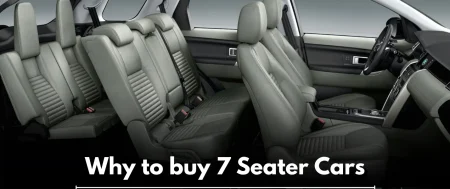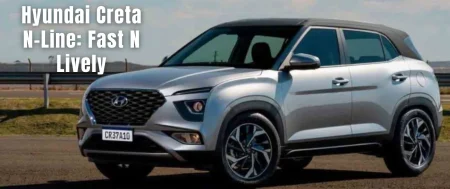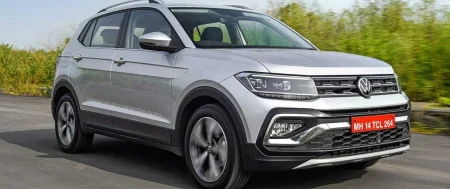Discover the top 10 mileage cars in India for 2025, offering exceptional fuel efficiency, advanced features, and value for money. Save more on every drive
Table of Contents
Introduction
In 2025, fuel efficiency remains a top priority for car buyers in India, where affordability and long-term savings are crucial. Automakers are focusing on advanced technologies, including hybrid systems and improved engine designs, to deliver outstanding mileage without compromising performance or comfort.
This guide highlights the top 10 mileage cars in India for 2025, offering the perfect balance of economy, features, and value. Whether you’re a daily commuter or someone planning long road trips, these cars are designed to help you save more on fuel while enjoying a comfortable driving experience. Explore the best options to make an informed choice for your next fuel-efficient car!

Why Mileage Matters for Indian Buyers
Mileage, or fuel efficiency, is one of the most critical factors for Indian car buyers. Here’s why it holds such significance:
Cost Savings
- Lower Running Costs: Cars with high mileage consume less fuel, translating into significant savings, especially for those with long commutes or frequent travel needs.
- Rising Fuel Prices: With fluctuating and often rising fuel prices in India, fuel-efficient cars help reduce the financial burden on drivers.
Affordability for the Middle-Class Segment
- Value for Money: For many middle-class families, a car is a long-term investment. A high-mileage car ensures better affordability over its lifetime.
- Budget-Friendly Ownership: Lower fuel consumption means lower overall expenses, making it easier for families to manage their monthly budgets{1}.
Daily Commutes and Traffic
- Heavy Traffic Conditions: Indian cities are notorious for their congested roads, leading to frequent idling and stop-and-go traffic. High-mileage cars ensure that drivers don’t end up spending excessively on fuel in such conditions.
- Long Travel Distances: Many Indian commuters travel long distances daily, making fuel efficiency a top priority for reducing recurring expenses{2}.
Eco-Friendliness
- Reduced Carbon Emissions: Fuel-efficient cars emit less CO2, contributing to a cleaner and greener environment, which is increasingly becoming a concern for environmentally conscious buyers.
- Support for Sustainability Goals: With the rise of hybrid and electric vehicles, mileage is being redefined to include reduced fuel dependency and sustainable driving options.
Resale Value
- High Demand for Fuel-Efficient Cars: Cars known for their excellent mileage often retain a higher resale value in the Indian market. Buyers prefer fuel-efficient options, ensuring quicker sales and better returns{3}.
Wide Range of Options
- Mileage-Oriented Models: Indian automakers prioritize fuel efficiency, ensuring that a variety of high-mileage options are available across hatchbacks, sedans, and SUVs.
- Advanced Technologies: With the introduction of hybrid engines and start-stop systems, mileage is further enhanced, giving buyers more reasons to prioritize fuel efficiency.
In a country where fuel expenses are a significant part of household budgets, choosing a car with excellent mileage ensures financial savings, environmental benefits, and long-term value, making it a top priority for Indian buyers{4}.
Top 10 Mileage Cars in India for 2025
With rising fuel costs and a growing demand for efficient vehicles, automakers in India have introduced several high-mileage cars in 2025. Here’s a list of the top 10 mileage cars that offer exceptional fuel efficiency and value for money:
Maruti Suzuki Celerio
- Mileage: 27.5 km/l (Petrol)
- Engine: 1.0L K10C Dual Jet Dual VVT Petrol
- Why It’s Great: Compact, budget-friendly, and equipped with the latest fuel-efficient technology.
Hyundai Grand i10 Nios
- Mileage: 25.5 km/l (Petrol)
- Engine: 1.2L Kappa Petrol with Start-Stop System
- Why It’s Great: Stylish hatchback with modern features and excellent mileage for city and highway drives.
Toyota Glanza/Maruti Suzuki Baleno
- Mileage: 24.6 km/l (Petrol)
- Engine: 1.2L Dual Jet Dual VVT Petrol
- Why It’s Great: Premium hatchbacks with spacious interiors, advanced tech, and hybrid options.
Tata Altroz Diesel
- Mileage: 23.6 km/l (Diesel)
- Engine: 1.5L Revotorq Diesel
- Why It’s Great: Safe and sturdy hatchback with 5-star GNCAP rating and a fuel-efficient diesel engine.
Honda City e:HEV Hybrid
- Mileage: 26.5 km/l (Hybrid)
- Engine: 1.5L i-MMD Hybrid Petrol
- Why It’s Great: Advanced hybrid sedan with a smooth drive, excellent fuel economy, and eco-friendly performance.
Maruti Suzuki Dzire
- Mileage: 25.9 km/l (Petrol)
- Engine: 1.2L K12 Dual Jet Dual VVT Petrol
- Why It’s Great: Popular compact sedan offering comfort, reliability, and outstanding fuel efficiency.
Hyundai Verna Diesel
- Mileage: 21.7 km/l (Diesel)
- Engine: 1.5L CRDi Diesel
- Why It’s Great: Stylish mid-size sedan with premium features and a fuel-efficient diesel engine for long-distance travel.
Maruti Suzuki Swift
- Mileage: 27.3 km/l (Petrol)
- Engine: 1.2L K12 Dual Jet Dual VVT Petrol
- Why It’s Great: Fun-to-drive hatchback with sporty looks, a powerful engine, and high fuel efficiency.
Kia Sonet Diesel
- Mileage: 24.1 km/l (Diesel)
- Engine: 1.5L CRDi Diesel
- Why It’s Great: Compact SUV with advanced features, stylish design, and excellent diesel fuel efficiency.
Tata Nexon EV (Electric Alternative)
- Mileage Equivalent: 312 km per charge
- Engine: Electric Motor (30.2 kWh Battery)
- Why It’s Great: Ideal for those seeking a green alternative to fuel-efficient cars, offering long range and lower running costs{5}.
Summary
These cars cater to a wide range of needs, from compact city commuters to spacious family vehicles, all designed to deliver top-notch fuel efficiency. Whether you’re looking for petrol, diesel, hybrid, or electric options, this list has something for everyone, ensuring savings at every kilometer in 2025.

How to Maximize Your Car’s Mileage
Improving your car’s mileage not only saves money but also reduces your environmental impact. Here are practical tips to help you get the most out of every liter of fuel:
Drive Smoothly
- Avoid Aggressive Driving: Accelerating quickly and frequent hard braking consume more fuel. Maintain a steady speed to optimize fuel efficiency.
- Use Cruise Control: On highways, cruise control helps maintain a constant speed, reducing fuel consumption.
Maintain Optimal Tire Pressure
- Check Tire Pressure Regularly: Under-inflated tires increase rolling resistance, reducing mileage. Keep your tires inflated to the manufacturer’s recommended levels.
- Use Low-Resistance Tires: If possible, switch to low-resistance tires designed for better fuel economy.
Minimize Idling
- Turn Off the Engine: If you’re stopped for more than a minute, such as at a long traffic signal or in heavy traffic, turn off the engine to save fuel.
- Use Start-Stop Technology: If your car has start-stop functionality, enable it to reduce unnecessary idling.
Service Your Car Regularly
- Follow Maintenance Schedules: Regular oil changes, filter replacements, and engine checks ensure the car runs efficiently.
- Keep the Engine Tuned: A well-tuned engine optimizes fuel combustion and improves mileage.
Reduce Vehicle Weight
- Remove Unnecessary Items: Avoid carrying heavy items in your car’s trunk or cabin unless needed. Excess weight increases fuel consumption.
- Use Roof Racks Wisely: Remove roof racks or carriers when not in use, as they create drag and reduce mileage.
Drive at Optimal Speeds
- Stay Within the Speed Limit: Driving at moderate speeds (usually between 50-70 km/h) delivers the best mileage for most cars.
- Avoid High Speeds: Driving above 100 km/h significantly increases wind resistance and fuel consumption.
Use Air Conditioning Efficiently
- Minimize AC Usage: Running the air conditioning at full blast can lower mileage. Use it sparingly, especially at lower speeds.
- Ventilate Before Using AC: Open windows briefly to let hot air escape before turning on the AC.
Plan Your Routes
- Avoid Traffic: Use navigation apps to find the shortest and least congested routes, reducing idle time and frequent stops.
- Combine Trips: Combine errands into a single trip to minimize fuel usage.
Use the Right Fuel
- Use Recommended Fuel: Always use the fuel grade recommended by your car’s manufacturer for optimal performance and mileage.
- Avoid Overfilling: Stop refueling when the pump automatically shuts off to prevent fuel wastage.
Keep Windows Closed at High Speeds
- Reduce Drag: Driving with open windows at high speeds increases drag, lowering fuel efficiency. Use the AC or fan instead if needed.
Monitor Mileage Regularly
- Track Fuel Consumption: Regularly calculate your car’s mileage to identify any sudden drops that may indicate a maintenance issue.
- Adjust Driving Habits: Use the information to modify your driving style for better efficiency.
Use Eco Driving Modes
- Eco Mode: If your car has an Eco mode, enable it to optimize engine and transmission settings for fuel efficiency.
- Avoid Sport Mode: Sport or performance modes prioritize power over economy, reducing mileage.
By adopting these habits and maintaining your car properly, you can maximize its mileage, save on fuel costs, and contribute to a greener planet{6}.
Benefits of Owning a High-Mileage Car
A high-mileage car offers several advantages that make it an appealing choice for many buyers. Here are the key benefits of owning a car known for its exceptional fuel efficiency:
Cost Savings
- Reduced Fuel Costs: High-mileage cars consume less fuel, helping you save significantly over time, especially if you drive long distances daily.
- Lower Running Costs: Better fuel efficiency means lower operational expenses, making high-mileage cars ideal for budget-conscious buyers.
Environmental Benefits
- Lower Emissions: High-mileage cars often emit less CO2 and other pollutants, contributing to cleaner air and a healthier environment.
- Supports Sustainability: Fuel-efficient vehicles use resources more effectively, aligning with global efforts to reduce carbon footprints.
Great for Commuting
- Ideal for City and Highway Driving: Whether navigating stop-and-go city traffic or cruising on highways, a high-mileage car ensures economical travel.
- Longer Driving Range: With better mileage, you can travel longer distances on a single tank, reducing the need for frequent refueling.
Increased Resale Value
- High Demand: Cars known for their fuel efficiency often retain their value better and attract more buyers in the used car market.
- Lower Depreciation: High-mileage cars tend to depreciate slower, especially in fuel-price-sensitive markets like India.
Advanced Technology
- Innovative Engines: High-mileage cars often feature advanced technologies like hybrid systems, turbocharged engines, or start-stop systems that enhance performance and economy.
- Enhanced Driving Modes: Many fuel-efficient cars come with Eco modes and energy recovery systems to maximize efficiency.
Budget-Friendly Ownership
- Affordable Maintenance: High-mileage cars are often designed to be lighter and simpler, leading to reduced wear and tear and lower maintenance costs.
- Efficient Design: Features like optimized aerodynamics and lightweight materials help keep ownership costs low.
Practical for Daily Use
- Convenient for Families and Individuals: High-mileage cars are versatile and suitable for a wide range of uses, from daily commutes to family road trips.
- Smaller Fuel Tanks Required: With better mileage, even smaller fuel tanks provide sufficient range, making the car lighter and more efficient.
Eco-Friendly Incentives
- Government Benefits: In many regions, governments incentivize the purchase of fuel-efficient vehicles through tax rebates, subsidies, or reduced road taxes.
- Compliance with Regulations: High-mileage cars often meet stringent emission standards, ensuring hassle-free ownership.
Reduced Dependence on Fuel
- Fuel Price Stability: With a high-mileage car, fluctuations in fuel prices have a lesser impact on your expenses.
- Alternative Fuel Options: Many high-mileage vehicles also offer hybrid or alternative fuel variants, reducing dependency on traditional fuels.
Peace of Mind
- Fewer Refueling Stops: A high-mileage car reduces the frequency of refueling, saving time and effort.
- Confidence for Long Drives: Knowing your car consumes less fuel provides added confidence for long-distance travel without worrying about fuel availability.
Owning a high-mileage car provides financial, environmental, and practical benefits. It’s an excellent choice for anyone seeking to save on fuel costs, reduce their carbon footprint, and enjoy a hassle-free driving experience.

Conclusion
Fuel efficiency remains a top priority for Indian car buyers, and the market in 2025 offers a diverse range of high-mileage vehicles catering to every budget and lifestyle. From compact hatchbacks and family sedans to SUVs and hybrid models, these cars deliver exceptional fuel savings without compromising on comfort, features, or performance.
Choosing a high-mileage car not only ensures lower running costs but also contributes to a greener environment by reducing emissions. With advancements in technology and the availability of innovative fuel-efficient options, owning a high-mileage car has never been more rewarding. Whether you’re a daily commuter or a long-distance traveler, these cars promise to make every kilometer count.
By BestGaddi
FAQs
Which car has the best mileage in India for 2025?
The Maruti Suzuki Celerio offers one of the best mileages in India, delivering an impressive 27.5 km/l in its petrol variant.
Are diesel cars more fuel-efficient than petrol cars?
Yes, diesel engines generally provide better mileage than petrol engines due to their higher energy efficiency. However, they may have higher upfront costs and maintenance expenses.
Are hybrid cars more fuel-efficient than regular cars?
Yes, hybrid cars like the Honda City e:HEV offer excellent fuel efficiency by combining a petrol engine with an electric motor, delivering up to 26.5 km/l.
Which is the most fuel-efficient compact SUV in India?
The Kia Sonet Diesel and Tata Nexon Diesel are among the most fuel-efficient compact SUVs in India, with mileage figures around 24.1 km/l and 23.6 km/l, respectively.
How can I improve my car’s mileage?
You can improve your car’s mileage by maintaining optimal tire pressure, avoiding aggressive driving, minimizing idling, and keeping up with regular vehicle maintenance.
Are high-mileage cars more expensive?
Not necessarily. Many high-mileage cars, like the Maruti Suzuki Swift and Hyundai Grand i10 Nios, are budget-friendly and offer excellent value for money.
Do electric cars have better mileage than petrol or diesel cars?
Electric cars don’t measure mileage in traditional terms but offer cost savings with lower running costs. For instance, the Tata Nexon EV provides an equivalent mileage of 312 km per charge.
Are high-mileage cars suitable for long-distance travel?
Yes, high-mileage cars are ideal for long-distance travel as they offer extended driving ranges and fewer stops for refueling, especially diesel and hybrid models.
What factors affect a car’s mileage?
Factors like driving style, road conditions, vehicle maintenance, tire pressure, and the type of fuel used can significantly impact a car’s mileage.
Which car offers the best mileage under ₹10 lakh?
The Maruti Suzuki Celerio and Maruti Suzuki Swift are excellent options under ₹10 lakh, offering mileage figures of 27.5 km/l and 27.3 km/l, respectively.





